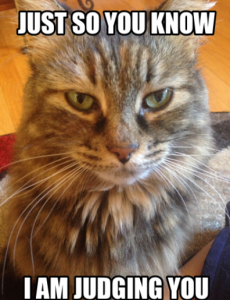 I spoke at length about critiquing recently, and I’d like to expound on some of the concepts I discussed. A good writer embraces the critique, which is not the same as accepting every opinion levied against your work. A critique is both an opinion and a fact; the opinion is what the reader feels when they read your work, and the fact is that their feelings are valid. Never apologize for feeling a certain way, and if a reader feels strongly regarding your work you should consider their criticism. Providing they can articulate why they felt the way they did. Nothing’s worse than “this sucks” without any clarification on why.
I spoke at length about critiquing recently, and I’d like to expound on some of the concepts I discussed. A good writer embraces the critique, which is not the same as accepting every opinion levied against your work. A critique is both an opinion and a fact; the opinion is what the reader feels when they read your work, and the fact is that their feelings are valid. Never apologize for feeling a certain way, and if a reader feels strongly regarding your work you should consider their criticism. Providing they can articulate why they felt the way they did. Nothing’s worse than “this sucks” without any clarification on why.
I’ve been fairly vocal about my dislike for Dan Brown. I think he’s a terrible writer. At the same time, he’s widely read (or was, at least), because readers found something compelling about his work. I could be a bitter egocentric person, convinced of my own superiority, and judge Dan Brown to be inferior and unworthy of my attention. While entertaining, that doesn’t help me become a better writer. Rather, I re-read DaVinci Code several times to fully identify what didn’t work (for me) and what did. That’s the key – identifying what works for me and what doesn’t work for me. DaVinci Code is easy to critique because, while the story is interesting, the characters and structure are rather terrible. The first thing I identified was Brown’s inability to fully realize his characters. In DaVinci Coded, nearly all of the characters become interchangeable trans-gender speakers. Take away dialogue tags, and it doesn’t matter who’s speaking because everyone sounds the same. That’s something I don’t want in my writing. I could keep picking apart the novel, but it’s just as important to recognize what works, and what makes the story compelling. The DaVinci Code is a wonderful mystery, complete with the crucial revelations at chapter conclusions which compel the reader to want more. It’s the mystery we want answered, not the characters. At the story’s conclusion, that same mystery resonates. Brown struck a chord between a believable mystery interwoven with historical fact and enough wonder to make readers question faith. That’s what sold DaVinci Code in droves, and that’s what Brown has infused in his other novels.
A good critique can identify your strengths as well as your weaknesses. When I write a critique, I try to be cognizant of what works for me and write a paragraph or two about it. It’s easy to identify what’s broken and what doesn’t work. Most readers will quickly spot plot holes, character flaws, spelling and grammar mistakes. While useful, that doesn’t paint a true picture of how a given story makes the reader feel, and as writers that’s crucial to understanding what works in your writing.
Think of your favorite novel, something you’ve identified as a great work of fiction. Challenge yourself to re-read that work and find a crucial flaw as well as the essence of what makes it a compelling read.